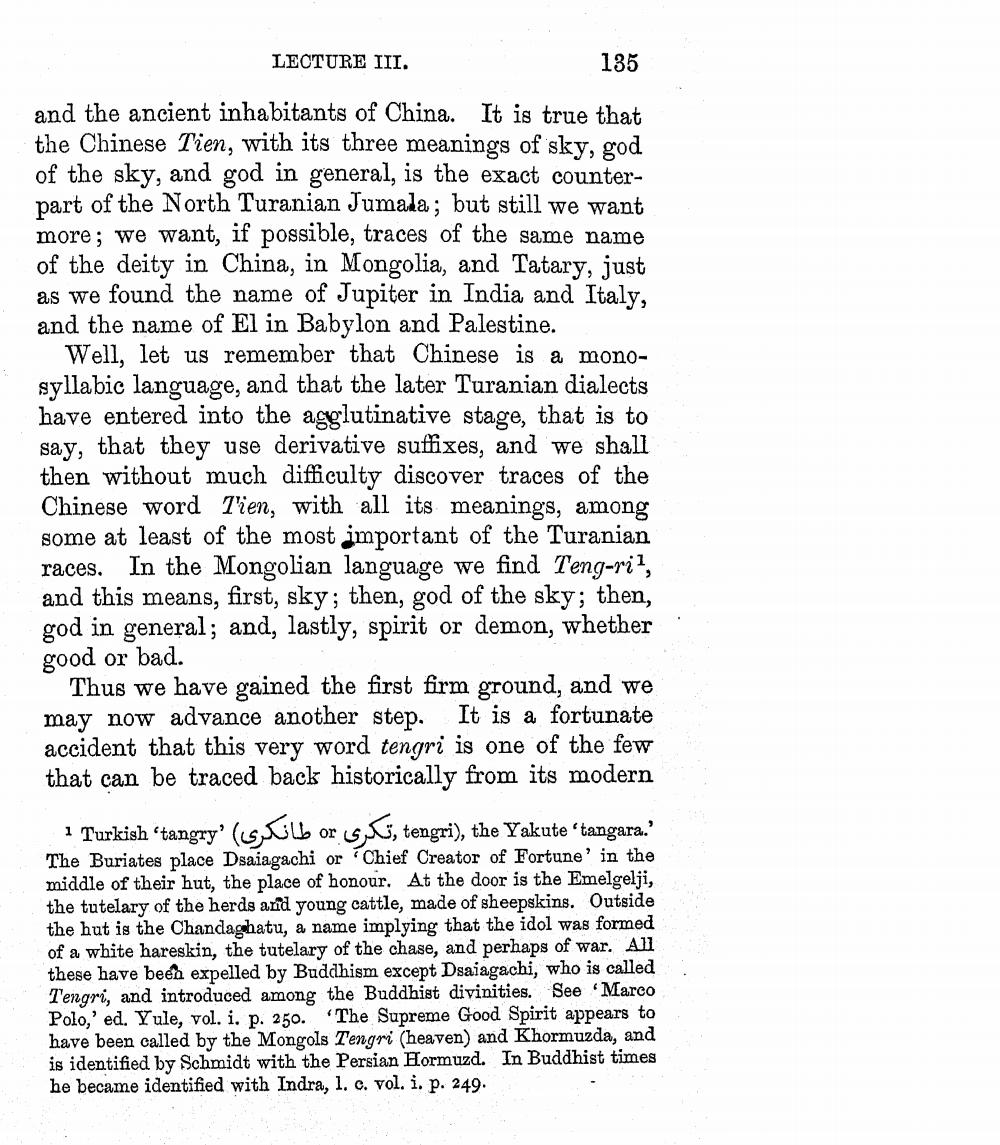________________
LECTURE III.
135
and the ancient inhabitants of China. It is true that the Chinese Tien, with its three meanings of sky, god of the sky, and god in general, is the exact counterpart of the North Turanian Jumala; but still we want more; we want, if possible, traces of the same name of the deity in China, in Mongolia, and Tatary, just as we found the name of Jupiter in India and Italy, and the name of El in Babylon and Palestine.
Well, let us remember that Chinese is a monosyllabic language, and that the later Turanian dialects have entered into the agglutinative stage, that is to say, that they use derivative suffixes, and we shall then without much difficulty discover traces of the Chinese word Tien, with all its meanings, among some at least of the most important of the Turanian races. In the Mongolian language we find Teng-ri1, and this means, first, sky; then, god of the sky; then, god in general; and, lastly, spirit or demon, whether good or bad.
Thus we have gained the first firm ground, and we may now advance another step. It is a fortunate accident that this very word tengri is one of the few that can be traced back historically from its modern
1 Turkish tangry' (b or, tengri), the Yakute 'tangara. The Buriates place Dsaiagachi or Chief Creator of Fortune' in the middle of their hut, the place of honour. At the door is the Emelgelji, the tutelary of the herds and young cattle, made of sheepskins. Outside the hut is the Chandaghatu, a name implying that the idol was formed of a white hareskin, the tutelary of the chase, and perhaps of war. All these have been expelled by Buddhism except Dsaiagachi, who is called Tengri, and introduced among the Buddhist divinities. See 'Marco Polo,' ed. Yule, vol. i. p. 250. The Supreme Good Spirit appears to have been called by the Mongols Tengri (heaven) and Khormuzda, and is identified by Schmidt with the Persian Hormuzd. In Buddhist times he became identified with Indra, 1. c. vol. i. p. 249.




